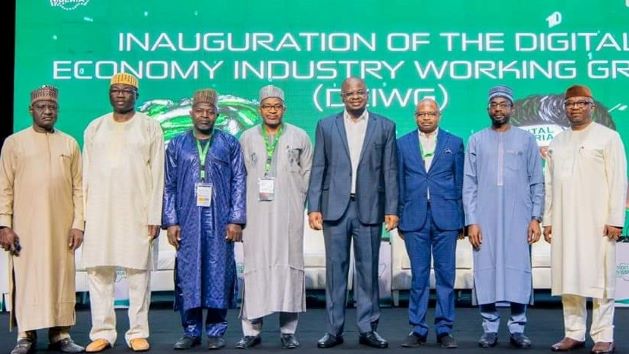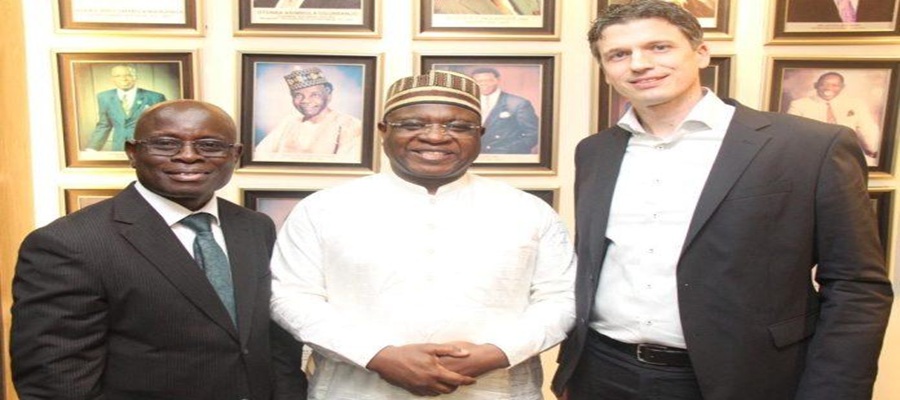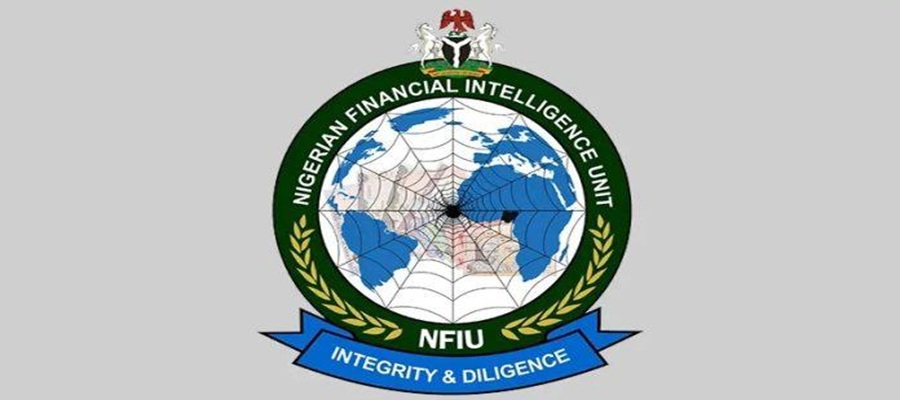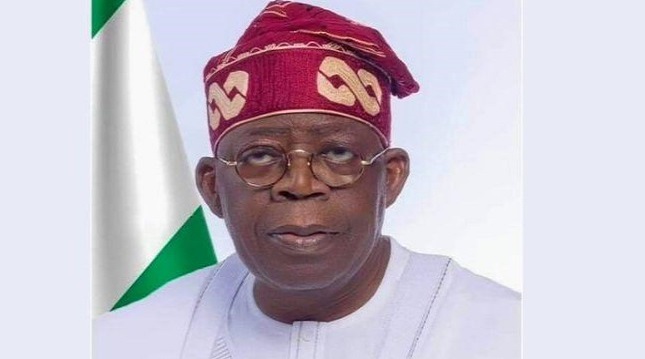News
FG Directs NITDA, NCC to Establish National Cybersecurity Research Centre

Prof. Isa Ali Ibrahim (Pantami), Minister of Communications and Digital Economy, has directed National Information Technology Development Agency and Nigerian Communications Commission to come up with the National Cyber Security Research Centre in Nigeria.

Prof. Pantami noted that the centre when completed would actively support the Nigerian participation in the Fourth Industrial Revolution.
“We are working every important component of the Fourth Industrial Revolution because we don’t want to be left behind. As at today, at least five African countries are part of the chase group that are chasing the developed countries and we have been displaying this in so many international events,” he added.
While decrying that African missed out in the previous three Industrial Revolutions, he expressed delight that the Fourth Industrial Revolution would usher in hope for Africa because it is a knowledge based revolution.
He said, “It is because of this we have been very proactive in Nigeria. The Nigerian Start-up Act, 2022 is to support our participation actively in the Fourth Industrial Revolution, also my directive to NITDA for the renaming of the National Centre for Artificial Intelligence and Robotics from NITDA Academy was to make us proactive in the fourth Industrial Revolution. And recently we have built the National Centre for Emerging technologies under NCC.”
Meanwhile, the Federal Government has inaugurated the Digital Economy Industry Working Group (DEIWG) to serve as an action group and Public Private Dialogue (PPD) platform to be formed by the Nigerian Economic Summit Group and the Federal Ministry of Communications and Digital Economy.
Minister of Communications and Digital Economy, Prof. Isa Ali Ibrahim (Pantami) inaugurated the group on behalf of the Federal Government during the closing ceremony of Digital Nigeria International Conference held in Abuja.
According to him, the group will be saddled with the responsibility of mapping out government initiatives and policies that are affecting the private sector pertaining to the Digital Economy
He maintained that the group will harmonise and harness the work done by both the FMoCDE and the NESG to unlock the potentials of a fully Digital Economy and deliver benefits to the public, private and social enterprise sectors, with a view to supporting the delivery of the short, medium and long-term ministerial strategy for driving the growth of the Digital Industry in Nigeria.
The objectives of the group include; to establish a Public-Private Partnership Platform as communication link between the public and private sector to drive the Digital Economy Policies and Strategies; to create a framework for strengthening the immediate delivery of initiatives based on the 8 pillars as outlined in the Nigerian Digital Economic Policy and Strategy (2020-2030); to facilitate the creation of an Enterprise Programs Management Office (EPMO) and funding mechanism which will serve as a framework of funding for DEIWG Secretariat and to formulate, in partnership with the government, mechanisms that drive and catalyse growth and increase investments in the Digital Economy.
Other objectives of the group are to examine the current efforts by the Federal Government to digitally transform through policies, projects and programmes and co-create a private sector response plan; to facilitate leadership mindset that is digital-driven for shared prosperity and shared national vision and drive continuity of the policies to enhance the institutional arrangement that drives the Digital Economy and to call to action on private sector to take lead of the creation of the Nigeria Digital Economy Policy and Strategy.
Highlighting the composition of the group, the Minister noted that it comprises of the government representatives, the private sector and the academia adding that it is a model the ministry has adopted in the last three years. “We don’t formulate policies alone, we ensure that we bring together all stakeholders to work with us as part of the implementation model, we try to interact with other people from different sector, this is what we are promoting.”
The Minister also revealed that the ministry would soon present the Nigeria Data Protection Bill to the Federal Executive Council.
According to the him, the bill has been forwarded to the Minister of Justice and Attorney General of the Federation for review and to give go ahead for it presentation to the council.
He said the bill will ensure confidentiality and privacy of Nigerians’ data when it comes to dealing with data and citizens’ information. He said Nigeria is one the countries to have data protection as a subsidiary law but it is now in the process of integrating the subsidiary law to a principal law.
Earlier, the NITDA’s Director Gerenal, Kashifu Inuwa, CCIE has said as the conference comes to an end, the government has reviewed the potentials availed in the country and had learned from the global community what is happening in other countries and regions and understood that all these prosperity and wealth are not evenly distributed.
He stated this on the backdrop that the 2022 Digital Nigeria International Conference has not come to end and urged the participants to continue with the momentum. “We want to keep the tempo until the end of November, when President Muhammadu Buhari will officially close the digital Nigeria 2022 ceremony.”
While acknowledging that this year’s conference is very massive, he reiterated that there are a lot to learn from it. He noted that the government is a listening government and ready to work with the tech ecosystem to make Nigeria the most vibrant ecosystem in the world.
He said, “We are already leading in Africa, but if we can compete globally, why do we need to settle for Africa? We have all what it takes to be the global talent party, and we have you, the youth, you are the greatest resources of this country. When we talk about digital economy or innovation economy, your greatest resource is not what is lying underneath you, but it is what you have in your brains.”
He advised Nigerians have to understand what it takes to make wealth through innovation because it is the only way a nation can be lifted out of poverty.
“We have the brain; we have the government’s political will, and government has provided the enabling environment.
“What left is for you to use the opportunity; to use the legal framework, to use all what government is doing to complement it. Digital Nigeria is for all of us. Government is just one part of it and you are all critical stakeholders. And with you on board, nothing is impossible for us,” he declared.
News
NGX Unveils Net-Zero Plan for Greener Capital Market

Nigerian Exchange Limited (NGX) has launched the NGX Net-Zero Programme to guide listed companies toward clear carbon reduction pathways and enhanced climate disclosures aligned with global investor standards.

NGX
The high-level launch engaged chief executives of quoted firms alongside development partners including German Investment Corporation KfW, DEG, and African Foresight Group (AFG), NGX’s implementation partner. Issuers and investors discussed financing decarbonisation, sustainability practices, and attracting climate-aligned capital.
NGX Group Chairman Dr Umaru Kwairanga described the initiative as concrete climate action, commending partners for two years of groundwork. “Today marks leadership and decisive action. Climate change has become a core business imperative, with capital markets mobilising capital and setting standards,” Kwairanga said.
He positioned NGX Net-Zero to support emissions measurement, disclosure, capacity building, and sustainable finance access, urging CEOs to embrace it strategically rather than as compliance. Kwairanga reaffirmed NGX’s goal to make Nigeria’s capital market Africa’s green finance hub.
Group CEO Temi Popoola called climate action a business imperative, noting sustainability-embedded firms attract capital, manage risks, and stay competitive. DEG Management Board Member Monika Beck highlighted partnerships scaling impactful, commercially viable climate solutions.
The event closed with a ceremonial gong marking the programme launch and send-off for outgoing DEG Regional Director Bernd Telemann.
News
Nigeria Off EU High-Risk Money Laundering List in Major Financial Win

Nigerian Financial Intelligence Unit (NFIU) has hailed Nigeria’s removal from the European Union’s list of high-risk third countries for Anti-Money Laundering and Countering the Financing of Terrorism (AML/CFT) as a landmark achievement endorsing the nation’s reform efforts.

Nigerian Financial Intelligence Unit (NFIU)
NFIU CEO Hafsat Abubakar Bakari said the delisting, contained in European Commission Delegated Regulation (EU) C (2025) 8460 adopted December 4, 2025 and effective January 29, 2026, affirms sustained AML/CFT and Counter Proliferation Financing (CPF) reforms.
The move follows Nigeria’s exit from the FATF Jurisdictions under Increased Monitoring after addressing strategic deficiencies, alongside Burkina Faso, Mali, Mozambique, South Africa and Tanzania.
Bakari noted the European Commission recognised Nigeria’s strengthened AML/CFT effectiveness, closed technical gaps, and fulfilled FATF Action Plan commitments leading to grey list removal in June and October 2025.
The delisting eliminates enhanced due diligence requirements for EU financial transactions, easing compliance, boosting cross-border flows, and enhancing Nigeria’s appeal for European trade, investment and partnerships.
The NFIU attributed success to President Bola Ahmed Tinubu’s political will and collaboration among National Assembly, law enforcement, regulators, judiciary, private sector and development partners.
The agency reaffirmed commitment to ongoing FATF, GIABA, EU engagement and domestic framework resilience to maintain international confidence in Nigeria’s financial system.
News
FG Directs Banks, Fintechs to Remit VAT on Service Fees

The Federal Government has directed all banks and fintechs to collect and remit 7.5 per cent value-added tax on certain electronic banking services, effective Monday, January 19, 2026, according to an email notice issued by payment platforms.

The VAT will apply to electronic banking charges, including mobile money transfers, USSD transaction fees, and card issuance fees, according to an email notice on Wednesday shared with customers by Moniepoint.
For example, if a bank charges N100 to make a transfer, the 7.5 per cent VAT will be applied to that service fee, not the money being sent.
“From Monday, January 19, 2026, we are required to collect a 7.5 per cent VAT, to be remitted to the Nigerian Revenue Service (formerly known as the Federal Inland Revenue Service).
“VAT will apply to certain banking services that include electronic banking charges such as mobile banking fees (transfers), USSD transaction fees, and card issuance fees,” the email read.
Other operators are expected to issue similar notices to their customers in the coming days. Services that will remain exempt include interest earned on deposits and savings, meaning customers will not pay tax on the returns from their accounts.
The NRS, formerly known as the Federal Inland Revenue Service, has set the deadline to ensure that all commercial banks, microfinance banks, and electronic money operators comply with the collection and remittance requirement.
Moniepoint stressed that this is not a price increase but a statutory obligation. “Moniepoint is required to collect and remit VAT to the Nigerian Revenue Service,” the company said in a statement.
The move is part of the government’s broader efforts to standardise VAT collection on digital financial services and expand revenue generation amid Nigeria’s growing digital economy. VAT on banking transactions is not entirely new; the NRS is now enforcing uniform collection rules across all platforms, ensuring compliance across the sector.
Customers have been assured that the new tax will be clearly itemised, with the VAT shown separately on transaction statements and reports.
In December, several commercial banks informed customers that the N50 stamp duty would be deducted on electronic transfers of N10,000 and above, following the commencement of provisions of the new Tax Act.
The charge, previously known as the EMTL, has now been formally reclassified as stamp duty and will be applied as a one-off fee on qualifying electronic transfers.

 E-Financial2 days ago
E-Financial2 days agoPaystack Expands Beyond Payments into Banking

 E-Financial2 days ago
E-Financial2 days agoSEC Partners Police in Nationwide Crackdown on Ponzi Schemes, Crypto Frauds

 E-Business2 days ago
E-Business2 days agoNigeria Targeted with 4,622 Cyber-attacks Per Week in December 2025

 General News2 days ago
General News2 days agoEFCC to Use Space Technology to Boost Asset Tracking, Investigations

 E-Financial2 days ago
E-Financial2 days agoFG Halts Tax Guidelines Amid Uncertainty Over Final Laws – Oyedele

 E-Financial2 days ago
E-Financial2 days agoPaystack Buys Microfinance Bank, Enters Nigeria Banking Arena

 News2 days ago
News2 days agoFG Directs Banks, Fintechs to Remit VAT on Service Fees

 General News2 days ago
General News2 days agoHow to Stay Safe Online During Sales Periods



























